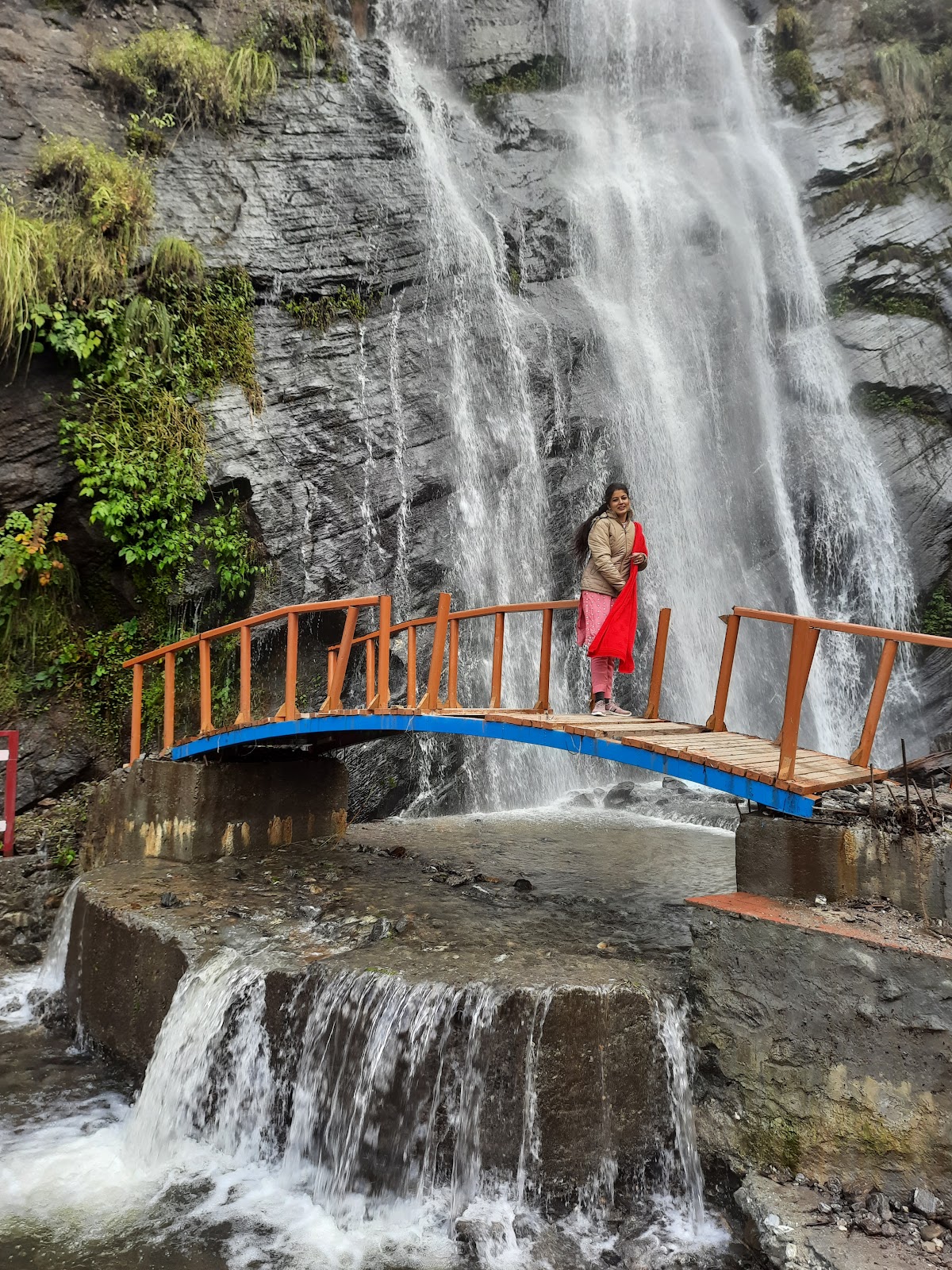Jyotirmath (Joshimath): Gateway to Spiritual Heights
Opening Hours
N/A (Town, not a specific establishment)
Best Time To Visit
April to June & September to November (Pleasant weather, avoid monsoon season)
Aarti Timing
Narsingh Temple Aarti (Example) : 6:00 AM & 7:00 PM (Approximate, confirm locally)
Joshimath, also known as Jyotirmath, is a significant town in Uttarakhand, serving as a crucial base for pilgrims journeying to Badrinath and Hemkund Sahib. It's also deeply revered as one of the four cardinal mathas established by Adi Shankaracharya, making it a spiritual and cultural hub.
Expectations for Pilgrims
Visiting the ancient matha established by Adi Shankaracharya and experiencing its serene atmosphere.
Seeking blessings from the presiding deities and understanding the teachings of Advaita Vedanta.
Using Joshimath as a base for trekking and visiting nearby sacred sites like Badrinath and Hemkund Sahib.
Experiencing the unique cultural blend of Garhwali traditions and spiritual practices.
Sacred Blessings: Prasad at Jyotirmath
Prasad at Jyotirmath typically consists of locally sourced items offered to the deities. It symbolizes divine blessings and is shared among devotees.
Prasad / Prasadam :
Note : Prasad is readily available at the Jyotirmath and surrounding shops. Local priests can guide you on specific offerings.
Sacred Contributions: Offerings at Jyotirmath
Devotees visiting Jyotirmath can offer various items to express their devotion and seek blessings. These offerings are a way to connect with the deities and support the maintenance of the sacred site.
Devotee's Offerings
Consult with local priests for specific rituals and appropriate offerings.
Essential Experiences: Immerse in Joshimath's Spirituality
Activities:
Darshan of the Kalpavriksha Tree
Sacred Rituals & Pujas: Deepening Your Connection
Jyotirmath hosts various pujas and rituals, offering devotees opportunities to connect with the divine and seek blessings. These ceremonies are central to the spiritual experience.
Attending Pujas:
Non Attending Pujas:
Pujas can be arranged through local priests at the Jyotirmath temple complex. It's advisable to inquire in advance, especially during peak pilgrimage seasons.
Historical Roots & Profound Meaning: Jyotirmath's Ancient Legacy
Jyotirmath is a historically and spiritually significant town, deeply rooted in Hindu traditions and the teachings of Adi Shankaracharya.
Royal Construction:
Adi Shankaracharya, the 8th-century philosopher and theologian, established Jyotirmath as one of the four cardinal mathas (monasteries) to propagate Advaita Vedanta philosophy. The construction of the matha complex is attributed to his efforts and the support of local rulers.
Renovations and Expansions:
Over the centuries, Jyotirmath has undergone several renovations and expansions, with contributions from various rulers, religious figures, and devotees. These efforts have helped preserve its historical and spiritual significance. Structural Damage to the temple area and land subsidence is impacting the math. Future restorations will need to incorporate mitigation strategies.
Ancient Status:
Jyotirmath holds immense ancient status as one of the four mathas established by Adi Shankaracharya, making it a central pilgrimage site for followers of Advaita Vedanta. It also serves as a gateway to several other important Himalayan shrines.
Significance: A Paramount Spiritual Beacon
Jyotirmath stands as a paramount spiritual center in Hinduism, drawing devotees seeking enlightenment, blessings, and a deeper understanding of Advaita Vedanta.
Key Aspects:
- The Northern Matha Jyotirmath is one of the four cardinal mathas established by Adi Shankaracharya, located in the northern direction. Each matha is associated with a particular Veda, and Jyotirmath is associated with the Atharva Veda.
- The Seat of Spiritual Learning The matha serves as a seat of spiritual learning and monastic order, promoting the teachings of Advaita Vedanta and providing guidance to monks and devotees.
- Winter Abode of Lord Badri During the winter months, when the Badrinath temple is closed due to heavy snowfall, the idol of Lord Badri is brought to Joshimath and worshipped at the Narsingh Temple. This makes Joshimath an important winter abode for Lord Badri.
- Gateway to Pilgrimage Joshimath serves as a major transit point for pilgrims visiting Badrinath, Hemkund Sahib, Valley of Flowers, and other Himalayan shrines. It provides essential facilities and accommodation for travelers.
- Preservation of Ancient Traditions Jyotirmath plays a vital role in preserving ancient traditions, religious practices, and cultural heritage of the region. It is a repository of knowledge and a symbol of spiritual continuity.
- The Kalpavriksha Tree The ancient Kalpavriksha tree near the Jyotirmath is believed to be centuries old and holds immense religious significance. It is said to fulfill the wishes of those who pray beneath it.
- Association with Sati It is believed that Sati used to visit this place, on her way to meet her husband Lord Shiva. According to belief Sati also met Adi Shankracharya at this place.
- Symbolic representation of spiritual power This is the place where Adi Shankracharya got enlightened and symbolic of spiritual power and knowledge
- Tattva-bodha of Adi Shankracharya This is the place where Adi Shankracharya wrote Tattva-bodha. Also he got the Jyoti from the holy lord Vishnu making this place holier than other places in India
- One of the Four Peethas It is also called the Northern Monastery because of its location in the north part of India. Every monastery follows religious scripts and helps keep the Sanatana Dharma

